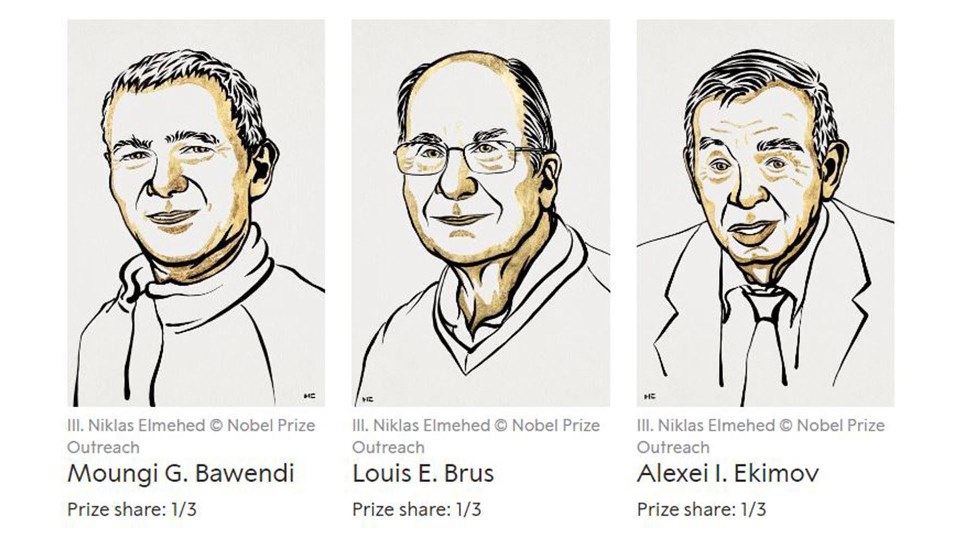Three scientists, Moungi Bawendi, Louis Brus and Alexei Ekimov, won the 2023 Nobel Prize in Chemistry, “for the discovery and synthesis of quantum dots,” the Royal Swedish Academy of Sciences has announced.
The Nobel Prize in Chemistry 2023 rewards the discovery and development of quantum dots, nanoparticles so tiny that their size determines their properties, the academy said in a statement.
“These smallest components of nanotechnology now spread their light from televisions and LED lamps.
“And they can also guide surgeons when they remove tumour tissue, among many other things,” the Academy stated.
This year’s laureates “have successfully produced particles so small that quantum phenomena determine their properties.
“The particles, called quantum dots, are now of great importance in nanotechnology”.
Johan Aqvist, chair of the Nobel Committee for Chemistry said quantum dots have many fascinating and unusual properties.
“Importantly, they have different colours depending on their size,” Aqvist added.
In the early 1980s, Ekimov succeeded in creating size-dependent quantum effects in coloured glass.
The colour came from nanoparticles of copper chloride. Ekimov demonstrated that the particle size affected the colour of the glass via quantum effects, the statement said.
A few years later, Brus became the first scientist in the world to prove size-dependent quantum effects in particles floating freely in a fluid.
Read Related News:
Buhari inaugurates NASENI Technology Complex
Zimbabwe’s first satellite launches into space – Report
In 1993, Bawendi revolutionised the chemical production of quantum dots, resulting in almost perfect particles.
Quantum dots now illuminate computer monitors and television screens based on QLED technology.
They also add nuance to the light of some LED lamps and biochemists, and doctors use them to map biological tissue.
Researchers believe that in the future, they could contribute to flexible electronics, tiny sensors, thinner solar cells and encrypted quantum communication, the Academy stated.
“(I am) very surprised, unexpected and very honoured,” Bawendi said in the onsite telephone interview of his reactions.
Bawendi, born in 1961 in Paris, France, got his PhD in 1988 from the University of Chicago in the United States. He is now a professor at Massachusetts Institute of Technology (MIT).
Brus, born in 1943 in Cleveland, the United States, got his PhD in 1969 from Columbia University. He is now a professor at Columbia University.
Ekimov, born in 1945 in the USSR, got his PhD in 1974 from Ioffe Physical-Technical Institute, Russia. He was the chief scientist at Nanocrystals Technology Inc., in the United States.
The prize amount is 11 million Swedish kronor (about $1 million) and will be shared equally between the three laureates. (1 Swedish krona = $0.091) (Xinhua)
Do you have a flair for Citizenship Journalism? Share story(ies) of happenings in your area with The NewsZenith on WhatsApp: 08033668669 or thenewszenith@gmail.com

